On April 27, the launch event for Hongmeng Kaiwu: The Dawn of Terminal Operating Systems was held simultaneously at Zhejiang University and Beijing’s Fengrusong Bookstore. Over 40 experts and scholars from academia, technology, and media sectors convened to engage in in-depth discussions about the breakthrough journey of Huawei’s HarmonyOS operating system from concept to reality. The dialogue centered on innovative pathways for Chinese tech enterprises to reshape global operating system ecosystems amid international competition. The event was co-hosted by CITIC Press Group, Zhejiang University’s College of Media and International Culture, Internet Laboratory, and the Wuzhen Digital Civilization Research Institute.
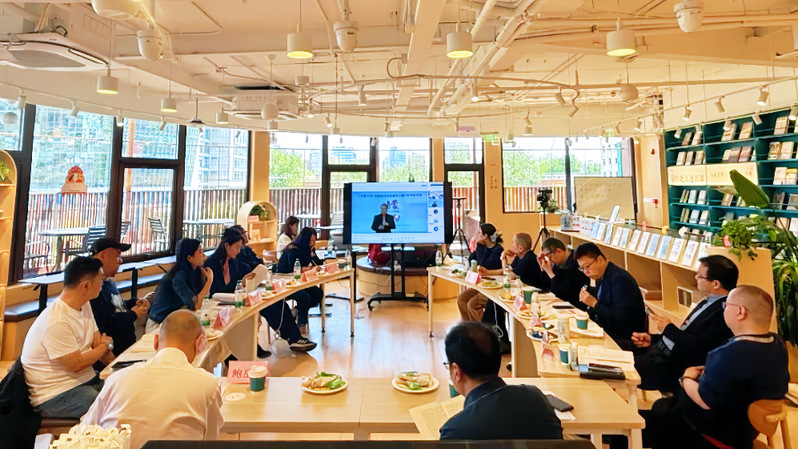
Hongmeng Kaiwu, a five-year project led by Fang Xingdong, Executive Vice Dean of the College of Media and International Culture, and his team, draws on interviews with more than 100 key figures involved in HarmonyOS’s development. The book compiles nearly two million words of firsthand material to deliver a panoramic reconstruction of the operating system’s research and development saga. As the second volume in Huawei’s Root Technologies Series following The Rise of Euler, it continues to spotlight China’s breakthroughs in foundational technologies.
In the foreword, Huawei’s Rotating Chairman Eric Xu described the book as a complete chronicle of HarmonyOS’s entire lifecycle—from conception and birth to maturation—objectively capturing both the struggles and triumphs Huawei endured, including internal debates during its development. Huawei advisor Tian Tao invoked classical Chinese poetry to frame HarmonyOS’s trajectory: From 'blooming resiliently on icy cliffs' to 'flourishing contentedly among spring flowers,' its rise embodies an epic corporate narrative of creation, scaling from nothing to significance, and ascending from fragility to strength.
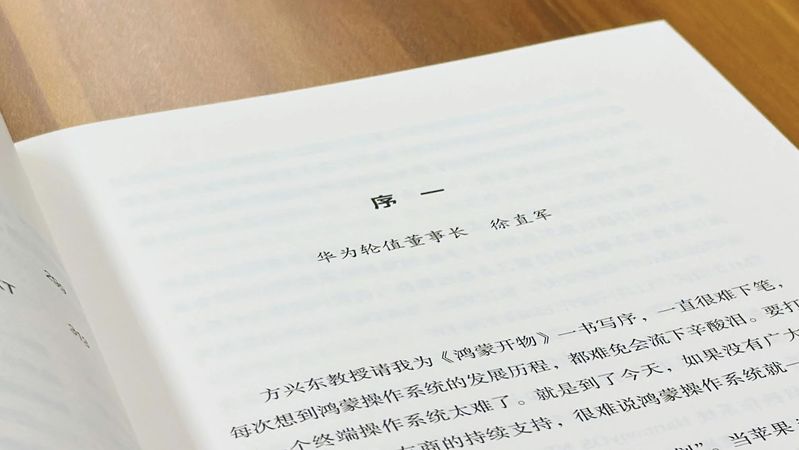
The narrative revisits Huawei’s critical moment in May 2019, when U.S. sanctions compelled the company toward technological self-reliance. Fang Xingdong declared, HarmonyOS heralds China’s entry into a 'Kaiwu' [epoch of creation] era—the nation’s first holistic industrial ecosystem poised to redefine Huawei’s future, China’s high-tech landscape, and global paradigms. He emphasized Huawei’s pivot to becoming an ecosystem company, calling it a corporate self-reinvention.
Wu Bofan, Director of the New Species Research Institute, characterized HarmonyOS’s genesis as a business allegory of surviving (survive) to thriving (thrive) under existential duress, while economist Wu Xiaobo deemed it an unavoidable milestone in contemporary Chinese corporate history, with Fang’s five-year effort preserving a historically invaluable record.
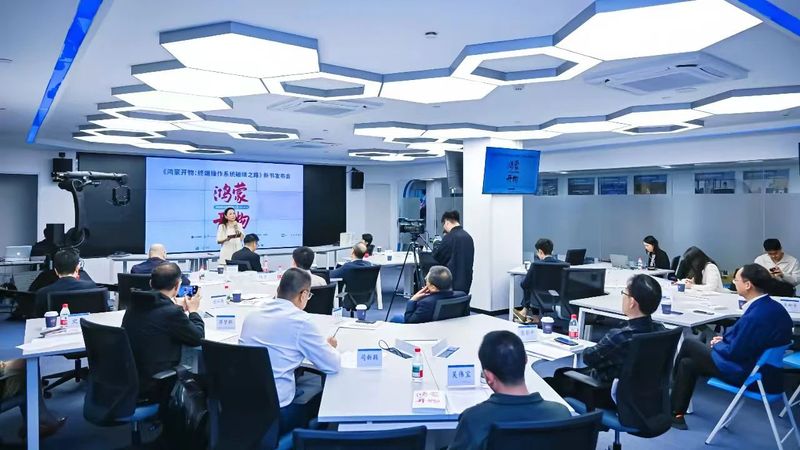
Despite technological breakthroughs, ecosystem challenges persist. Kunlun Nest founder Bao Yueqiao noted that while HarmonyOS has gained traction in vertical industries, consumer market penetration demands overcoming critical ecosystem barriers. CSDN founder Jiang Tao contrasted U.S.-China tech landscapes: Without core technologies and self-sustaining ecosystems, innovation remains constrained. HarmonyOS charts a path from follower to leader, galvanizing the industry toward a transformative era.
Wu Sheng, founder of Scenario Lab, outlined three future drivers for HarmonyOS: experience refinement, scenario adaptation, and philosophical ethos—the long-term dedication behind its development offers vital lessons for Chinese innovators. Technology analyst Hu Zhe added, Huawei’s bottom-up ecosystem construction is both a strategic breakthrough and an industrial imperative for autonomy.
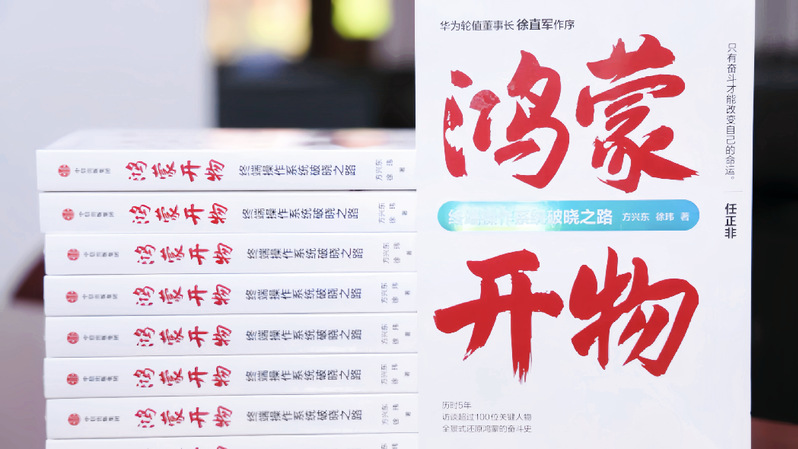
Beyond technical feats, Hongmeng Kaiwu documents the human endeavor behind the system. Tian Tao hailed it as an epic case study in corporate innovation, while product strategist Liang Ning praised its Eastern philosophical reframing of operating system principles, contributing Chinese solutions to global tech transformation. Independent publisher Zhong Xiubin likened HarmonyOS to China’s historic Two Bombs, One Satellite achievements while cautioning against isolationist tendencies in technological development.
CITIC Press editor Zhou Jiacui disclosed rigorous editorial refinements to democratize technical jargon for broader readership. Fang Xingdong positioned the book as a generational marker: China’s high-tech history now divides into pre- and post-HarmonyOS eras. This work stands as both a milestone and an inspiration for future pioneers.
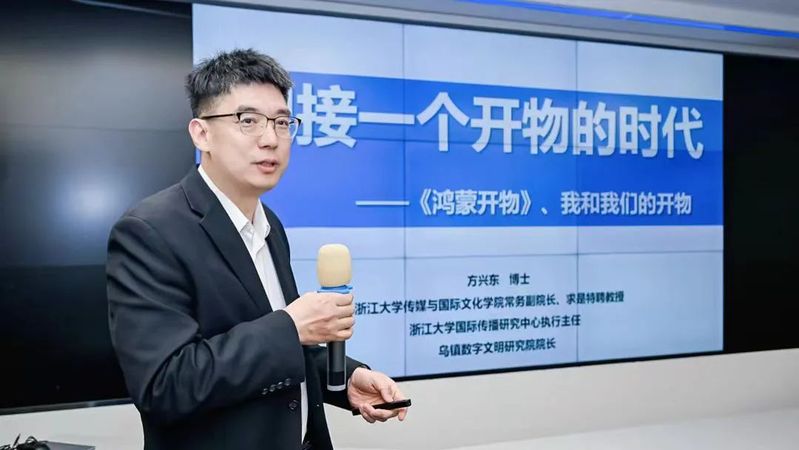
The launch ignited cross-disciplinary discourse on globalizing China’s open-source ecosystem, framing HarmonyOS’s story as both a technological triumph and an awakening of China’s innovative spirit.

